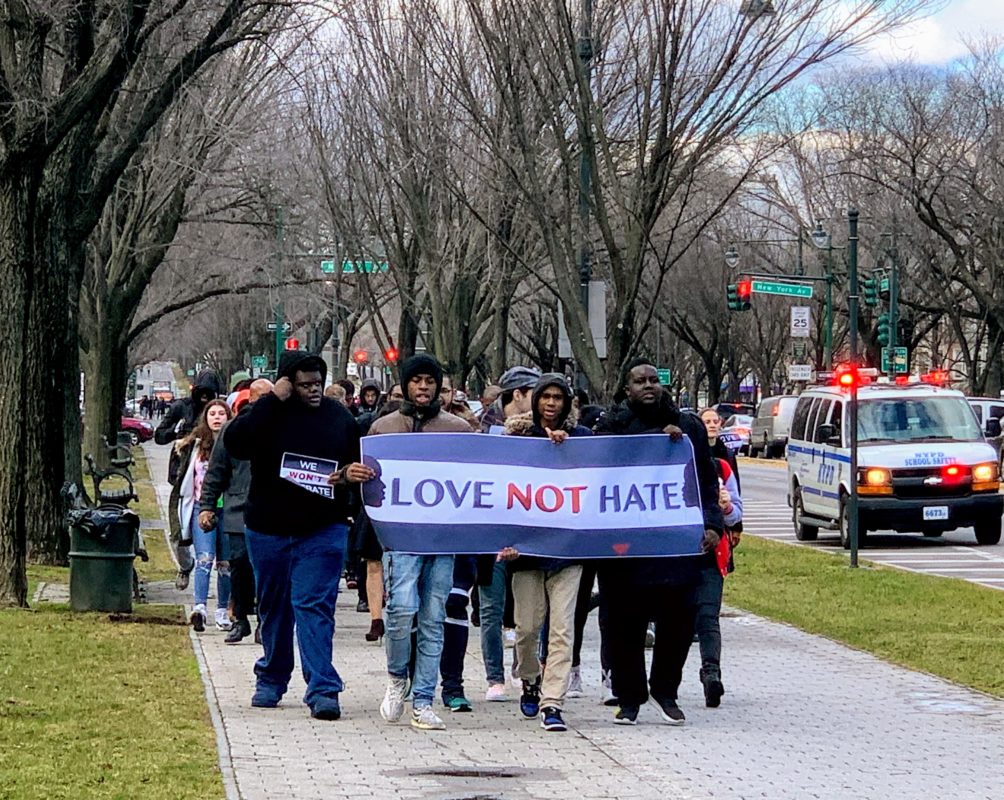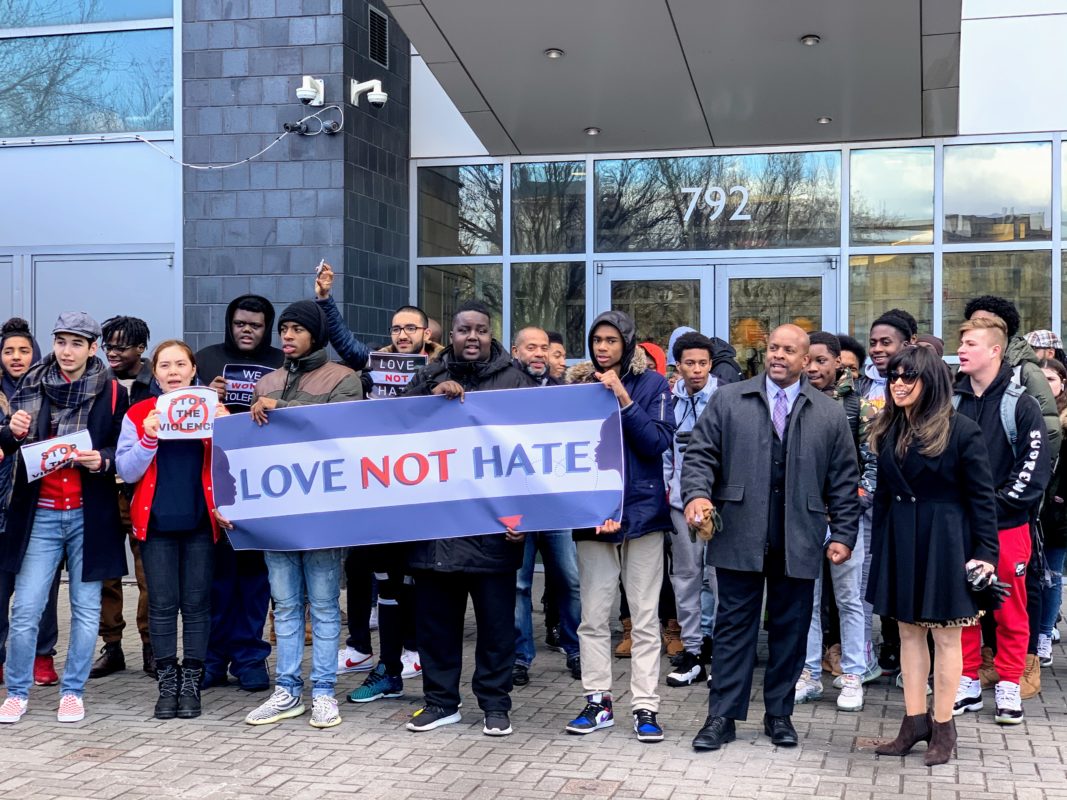What are the Long-Term Solutions to Anti-Semitic Hate Crimes?


It’s been more than three weeks since Mayor Bill de Blasio announced measures to counter the wave of anti-Semitic hate crimes across the city. While the crimes have not stopped, Deborah Lauter, the executive director of the Office for the Prevention of Hate Crimes (OPHC), told Bklyner that the wave has subsided.
“It’s been stemmed mainly through the law enforcement angle, stepped up patrols and security precautions,” Lauter said.
Policing
In December, the NYPD deployed four to six more police officers per tour in the hot spots of Williamsburg, Crown Heights, and Borough Park. Mayor de Blasio committed to increasing the police presence over time. But many people wonder if that is sustainable and what are the long-term solutions to ending these crimes that have soared over the past 18 months.
Lauter explained that the law enforcement piece is just one element of a three-pronged solution to prevent hate crimes now and in the future. The other two pillars are community relations and education.
David M. Pollock, the associate executive director of the Jewish Community Relations Council (JCRC), told Bklyner that the three pillars are a great starting point.
He described the NYPD as an “incredible” law enforcement agency and the Hate Crimes Task Force as “the best in the world.” But more is needed for a long-term solution.
“The first thing we have to realize is that we can’t police our way out of hate crimes,” said Pollock, who also serves as JCRC’s director of public policy and Jewish security. “Hate crimes represent a break in the fabric of our society, so we have to use a variety of tools.”
Mental Health
One of those tools must address mental health, Pollock said. JCRC data show that people with known psychiatric histories account for nearly one-third of violent hate crimes in Brooklyn’s ultra-Orthodox neighborhoods.
“We are not blaming the mentally ill,” he stated. “ We are advocating for programs to address mental illness.”
Lauter explained that her office, which launched in September 2019, addresses the mental health challenge in interagency committee meetings, which include the Department of Health and Mental Hygiene and ThriveNYC.
“We want to look at all the aspects of who the perpetrators are and who the victims are and that mental health services are provided to them(victims) as well,” she added.
Education

JCRC’s research found that teenagers account for nearly two-thirds of anti-Semitic hate crimes—many of them non-violent offenses.
“It’s just kids being stupid kids,” Pollock commented. “It’s not an excuse. It’s a diagnosis.”
The best remedy is placing them in restorative justice programs, which focus on rehabilitating offenders through reconciliation with their victims and restitution.
“We are not saying throw them in jail. We’re saying that it has to be something like community service, aligned with educational programs, and by the way, a trip to the Museum of Jewish Heritage would be wonderful.”
Lauter agrees. “Youth offenders don’t how the context. Many of these incidents are swastika vandalism. They know that they are doing something bad but don’t have the historical background for what that symbol means for the Jewish community,” she stated.
Free Speech or Hate Speech?
They both underscored that social media is rife with hate speech and too often serves as a platform for haters. A long-term solution to hate crimes must include the various social media networks actively policing their sites. Lauter noted that this is not a free speech issue.
“The platforms are private companies, and they have a right to determine what is and is not on the platforms,” she explained. “Free speech kicks in if the government gets involved.”
Ultimately, New Yorkers must admit that the melting pot theory – that people of different backgrounds could form a homogeneous society – is outdated, Pollock asserted.
“We know that’s not going to work. What I have to learn is that I have to respect you. I’ve got to understand you. I have to respect your practices. I have to know that you and I are living together, cheek by jowl, and we all have a stake in New York,” he said, adding, “We have to figure out how to teach that.”




